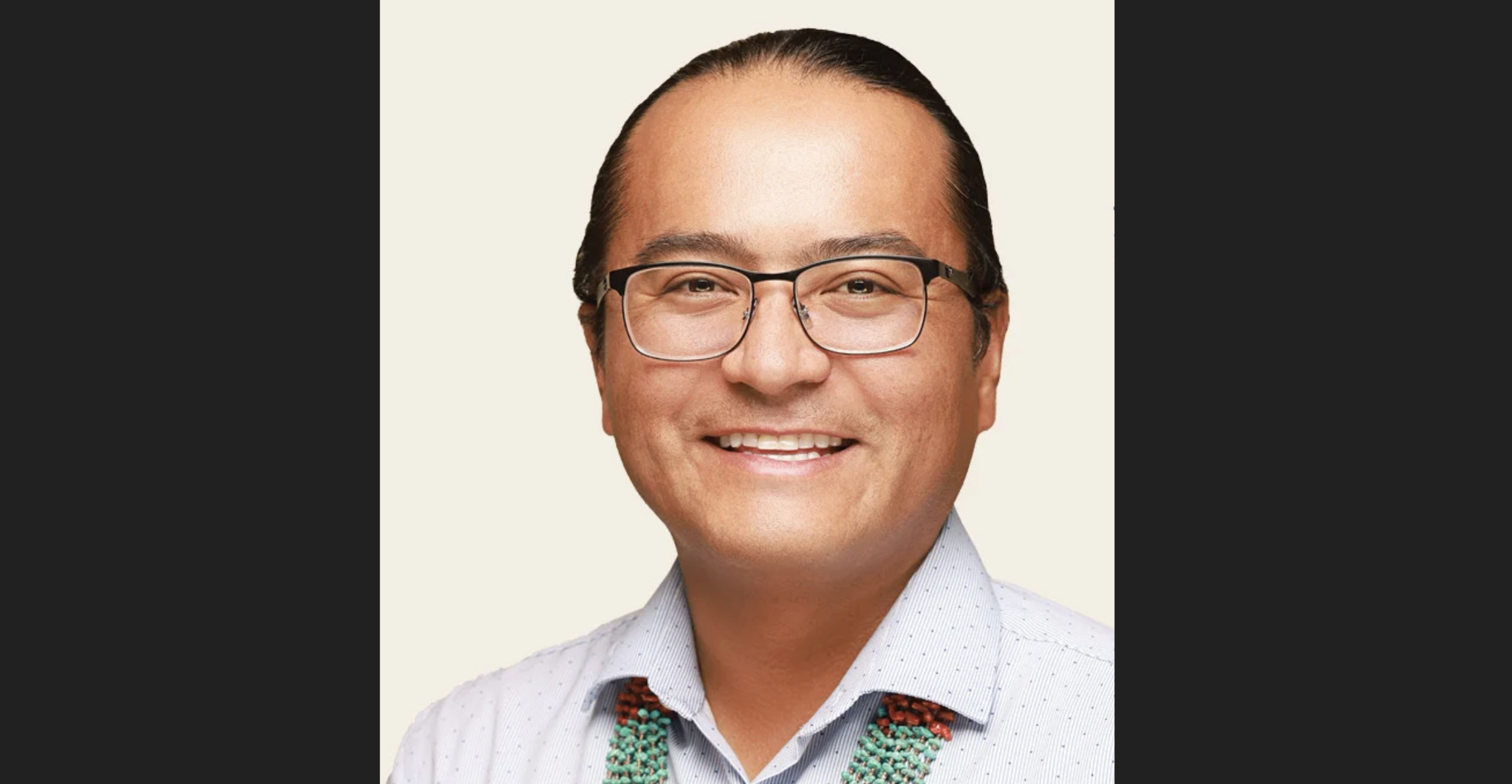
- Details
- By Native News Online Staff
Navajo Nation President Buu Nygren was inaugurated on Tuesday, Jan. 10. At 36, Nygren is the youngest person ever elected President of the Navajo Nation.
He joined Native News Online on last week’s Native Bidaské (Spotlight). He was interviewed by Levi Rickert, editor of Native News Online.
Nygren, who grew up in humble beginnings on the Navajo Indian Reservation, overcame many obstacles on his way to becoming the Navajo Nation president. He lived in a 10-foot travel trailer with no electricity and no running water.
“I grew up with no electricity, no running water, being on a bus for two hours just to get to school," Nygren told Rickert. "And so those are some of the conditions I grew up with having a mom that struggled with alcoholism, and then eventually it took her life. As president of the Navajo Nation now, I want to make sure that’s at the center of all the decisions that I make is how do we cover the basic necessities to be a strong Nation.”
Want more Native News? Get the free daily newsletter today.
Nygren spoke about fixing the multitude of infrastructure issues the Navajo Nation faces. He sees the lack of good roads as a major infrastructure problem on tribal land.
“There’s thousands of miles of dirt roads, and then there’s hundreds of miles of paved roads," Nygren said. "We need to come up with creative solutions to open up more gravel pits that are that gravel that’s ready for paving highways..we got to make it easier for EMS and public safety to get out there. And to make sure that school bus routes are taken care of as well because our kids need to get to schools safely."
With over 80,000 confirmed cases of COVID-19 and almost 2,000 deaths from the virus since March 2020, the Navajo Nation served as the epicenter for COVID-19 in Indian Country. As a result, the previous administration implemented strict stay-at-home orders, curfews, and face mask requirements. Rickert asked Nygren if he was ready to lift the mask mandate still in effect on the Navajo Nation.
“We need to completely open 100 percent. Because all surrounding communities around the Navajo Nation are 100 percent open," Nygren responded. "We’re the only ones that are maintaining this and it’s very difficult for normal Navajo people. As president, I want to make sure that the Navajo people have access to their government because a lot of them need just basic services or basic health right now. So as president, I’m actually working on making sure that we do lift that mandate and make it optional.”
To hear the entire conversation, watch the episode of Native Bidaske below or on YouTube.
Native Bidaské is produced by Native News Online weekly and streamed on Facebook, Twitter, and YouTube every Friday at 12 noon - Eastern Time.
More Stories Like This
Native News Weekly (August 25, 2024): D.C. BriefsCheyenne River Youth Project to Celebrate Women’s Strength at Barbie-Themed Passion for Fashion on March 14
Celebrating Native American Women
Native Bidaské: The Illusion of Freedom and the Myth of America 250, Leonard Peltier Speaks Out
Monday Morning (March 2, 2026): Articles You May Have Missed This Past Weekend
Help us defend tribal sovereignty.
At Native News Online, our mission is rooted in telling the stories that strengthen sovereignty and uplift Indigenous voices — not just at year’s end, but every single day.
Because of your generosity last year, we were able to keep our reporters on the ground in tribal communities, at national gatherings and in the halls of Congress — covering the issues that matter most to Indian Country: sovereignty, culture, education, health and economic opportunity.
That support sustained us through a tough year in 2025. Now, as we look to the year ahead, we need your help right now to ensure warrior journalism remains strong — reporting that defends tribal sovereignty, amplifies Native truth, and holds power accountable.
 The stakes couldn't be higher. Your support keeps Native voices heard, Native stories told and Native sovereignty defended.
The stakes couldn't be higher. Your support keeps Native voices heard, Native stories told and Native sovereignty defended.
Stand with Warrior Journalism today.
Levi Rickert (Potawatomi), Editor & Publisher

